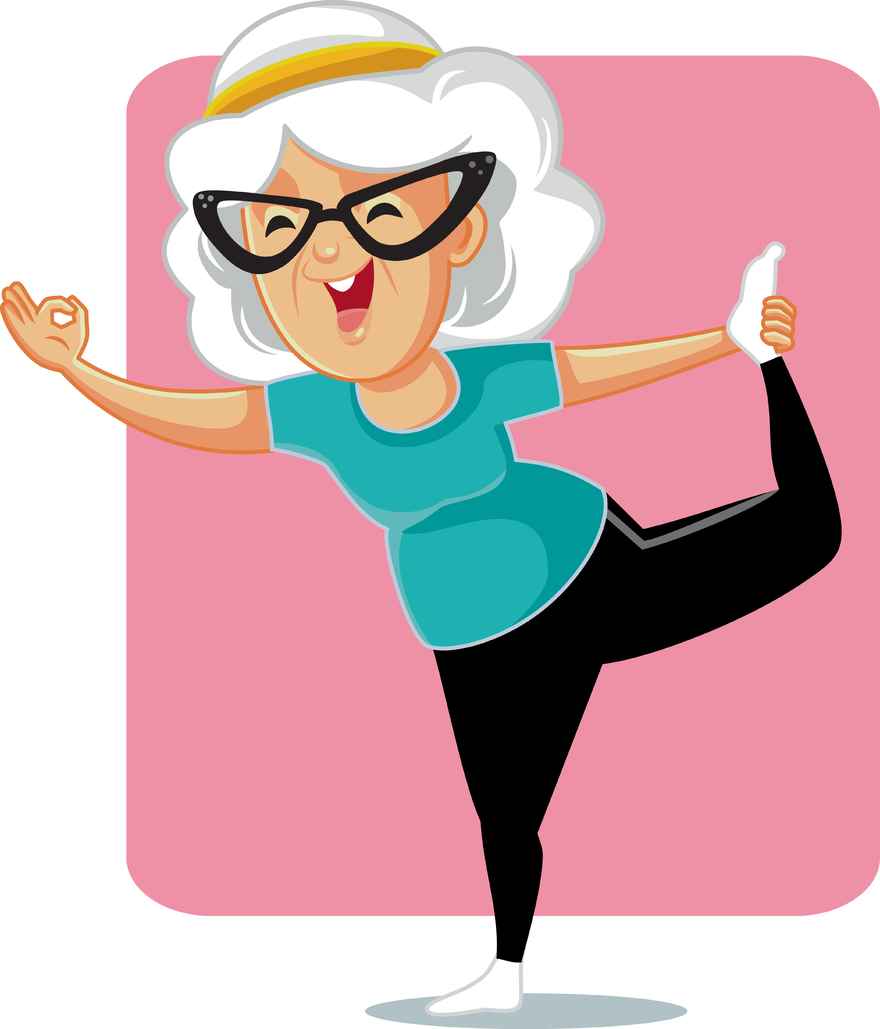Let's move!

Maybe you don’t like to ‘exercise’?
Usually I don’t advise women to exercise. Why would I?
If a woman likes to go to the gym or visit with a personal trainer, or she enjoys jogging or swimming or using exercise equipment, etc. — she doesn’t need my advice. This is something she likes to do. She feels happy and yes, she gets health benefits too.
On the other hand, I’ve found that recommending exercise is often counterproductive. Many women just don’t like ‘exercise’ activities. If they do follow the doctor’s advice to exercise, they participate in an exercise activity for a while, but eventually they stop because, hey! it’s just not something they like to do. Then they feel guilty, even demoralized. They’ve failed because they can’t force themselves to ‘exercise’.
So, I may not advise exercise — but I do encourage movement! Your body likes to move. If you pay attention, you’ll probably notice the pleasure of movement. Sure, resting and relaxing are very nice too — but then it feels good to move!
This is deep in our biology. Animals like to move. In fact, that’s one way that researchers can study the effects of stress in a laboratory animal — they confine the animal so it can’t freely move. Very soon, the animal is stressed. It wants to move!
We modern people often have mental habits that confine us too, even though we don't recognize we’re confined.
It’s easy to forget to move when your mind is preoccupied. We get absorbed in watching television, or reading, or scrolling Facebook, or playing a video game, or replying to emails, or working online, etc. Or we might just be sitting, sipping tea and thinking, imagining, worrying. But, one way or another, we forget to move.
This gives us what researchers call a “sedentary lifestyle”. And research shows that a sedentary lifestyle is linked to many health problems — such as cardiovascular disease, diabetes, depression, dementia, and premature death.
And research also shows the better health outcomes associated with physical activity — even physical activity that’s light intensity.
See this 2019 editorial from the respected British Medical Journal:
====
“New research shows that any level of movement decreases risk of premature death…
The observation that light intensity physical activity provides substantial health benefits is important for public health as this suggests that older people and those who are not able to be physically active at higher intensities will still benefit from just moving around.
It is well established that physical activity of a moderate or vigorous intensity (such as brisk walking) is good for your health.
More recently, it has also been shown that people in contemporary societies are spending the majority of their day sitting, and that this prolonged sitting is also linked to an increased risk for many chronic diseases and premature death….
A simple public health message would be to sit less—move more and more often: all physical activity is beneficial for longevity. “
[excerpt from BMJ Opinion, August 21, 2019]
====
Yes, physical activity — movement — is healthy! For example, some scientists recommend we should stand and stretch or walk briefly, every 30 minutes or so, whenever we’re sitting for long periods.
What about housework?
The benefits of physical activity even extend to doing housework! A new study shows that older women who routinely do more housework have somewhat thicker brains than women who do less housework.
In the study, ‘housework’ included: light housework (tidying, dusting), meal preparation/clean up, shopping, heavy housework, home maintenance (e.g., yard work and home repairs), and care giving. The brain volume of participants was measured using an MRI scanner.
Researchers speculate these results could mean that a woman can reduce her risk of cognitive decline and dementia — just by being active and doing her own housework!
As one medical editor commented: “We know that a lot of household tasks are still predominantly performed by women. Is this perhaps a reason that women live longer and stay fitter mentally into old age than men?”
To your natural happiness!
Citation:
Household physical activity is positively associated with gray matter volume in older adults
Noah D. Koblinsky et al. BMC Geriatrics 2021

